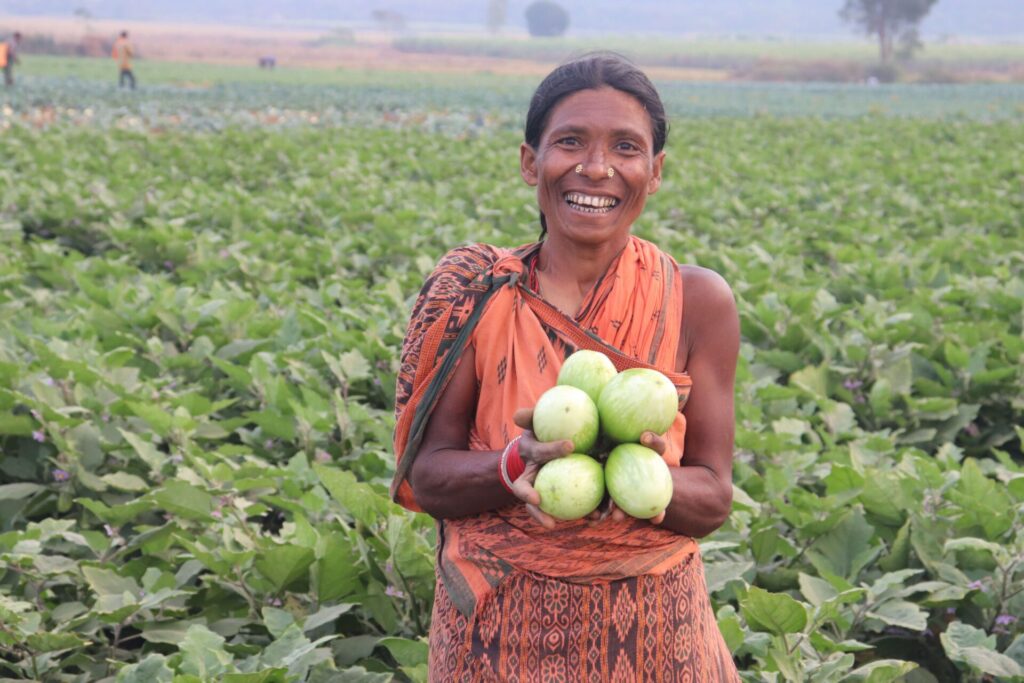
Sheopur

Outreach by Numbers
Sheopur district is located in the north of Madhya Pradesh in the Chambal division. The presence of the Chambal ravines chiefly marks the region – the Chambal river marks the border with Rajasthan. With a total population of 6,87,861; Sheopur’s economy is primarily agrarian with84.39 % living in rural areas. Scheduled Castes and Scheduled Tribes comprise 15.76% and 23.47% of the population, respectively. The Saharia are the main tribe in the area, with a rich ethnic diversity of 43 Scheduled Tribes. Sheopur comprises 3 revenue divisions, 3 blocks, 5 tehsils, 225 Gram Panchayats, and 585 revenue villages. Agriculture forms the backbone of Sheopur’s economy, with major crops being guava, paddy, bajra, mustard and wheat. Forests cover around 60% of the district’s terrain. Tendu leaves, baheda, amla, honey, nagarmotha, belguda and satawarare the major NTFPs on which communities depend for their livelihoods. The art of woodcarving has recently started flourishing in district Sheopur.
Harsha Trust began operations in the district, in the year 2022 in 3 blocks covering 43 villages through the Community Nutrition Gardens (CNG) programme. Currently, the initiative covers more than 502 households in 43 villages, focusing on enhancing nutrition security and livelihoods of women members, particularly landless vulnerable families.
Key highlights/progress in the year (2023-24):
- This is a one-of-a-kind collaborative approach among GIZ and SRIJAN to work with PRIs and leverage MGNREGA funds to develop common land that caters to the nutrition security and livelihoods of vulnerable and marginalized women.
- More than 500 women from 45 CNGs have been trained in organic farming techniques, equipping them with knowledge on sustainable agricultural practices. This training helps empower women to cultivate healthier produce without relying on synthetic fertilizers and pesticides, benefiting their families and the environment.
- Ten traditional seed banks have been established in ten villages to preserve indigenous plant varieties. These seed banks serve as vital resources for maintaining biodiversity, enhancing crop resilience, and ensuring future generations have access to local, hardy crop varieties.
- A total of 20,939 kg of vegetables have been harvested from CNGs, with 765 kg sold in local markets. The sale of these vegetables has generated an income of Rs. 338,725. This income supports the sustainability of the CNG initiatives, and reinvestment into garden maintenance, and contributes to the economic stability of the participating families.
- Vegetables produced from CNGs are also supplied to local Anganwadi and schools, enriching the mid-day meal programs. This inclusion ensures that children receive fresh and nutritious meals, improving health and learning outcomes.
- Over 10,000 horticultural plants have been successfully planted across 34 Community Nutrition Gardens (CNGs) with support from the Mahatma Gandhi National Rural Employment Guarantee Act (MGNREGA) convergence. This initiative aims to enhance local nutrition sources and increase green cover in the region.
- Members of CNGs earned Rs. 207,918 from labor payments under the MGNREGA program. This not only supports the members financially but also ensures labour-intensive tasks within the gardens are compensated, benefiting both individuals and the CNG’s functionality.
- Through convergence programs, nine solar pumps have been distributed to nine CNGs. These pumps improve irrigation access and efficiency, enabling sustainable water use and reducing dependency on conventional power sources.
- The women members have invested Rs.1,68,000/- in the CNGs, including Rs.1,52,000/- from SHG credit and Rs.16,000/- from member contribution. This investment empowers women farmers and strengthens the sustainability of the CNG initiatives.